Archives
New Citizens Recognized on Citizenship Day
“We’re celebrating welcoming week here in Austin to embrace the diversity that we have because it makes the town better if everyone feels welcome,” said Sara Karki of the Immigrant Law Center of Minnesota.
Hello and Goodbye: Staff Changes at ILCM

ILCM is excited to welcome five full-time staff members to our team this fall.
Erin Schutte Wadzinski was born and raised in Worthington, Minnesota and works in ILCM’s Worthington office. Erin graduated from Yale University with a bachelor’s degree in political science and earned her JD from UConn School of Law, where she graduated with Honors and certificates in Energy & Environmental Law and Human Rights.
Prior to joining the ILCM team, Erin worked at the United Nations as a delegate for the Republic of Seychelles from 2010-2011, and from 2012-2018 at Yale University as director of the Yale Young Global Scholars Program. In her position at Yale, she led academic enrichment programs for nearly 2,000 high school students each year from around the world, and in 2014, she founded the Yale Young African Scholars Program in Ethiopia, Ghana, Rwanda, and Zimbabwe.
Erin applied to ILCM, “because of the organization’s presence in Greater Minnesota and in Worthington specifically.” She was attracted to ILCM’s “social impact mission to provide low-income immigrants and refugees across Minnesota with legal representation.”
Erin also serves on the Alumni Advisory Board of Questbridge, an educational non-profit that promotes college access for high-achieving low-income students. Erin is proud to return to her hometown and to serve immigrants and refugees in the Worthington community. While at ILCM, she aspires “to make a positive contribution to Worthington and the surrounding area by providing assistance to immigrants and refugees who also call Southwest Minnesota their home.”
Jess graduated from Hamline University School of Law in 2009. During law school she clerked at Centro Legal and the Immigrant Law Center of Minnesota. Her undergraduate degree was from the University of Minnesota in Global Studies with a minor in History. She has studied and lived in Spain, Panama, Cuba, and Costa Rica.
Jess previously worked as a Staff Attorney at our office in Worthington, but as of mid-September joined the St. Paul team as Pro Bono Coordinator/Staff Attorney.

Kerry McGuire graduated from the University of Minnesota Law School in 2016. While in law school, she served as a student director in the Detainee Rights Clinic which provided removal defense for detained immigrants. Kerry graduated from the University of Notre Dame in 2009 and worked in social services in an immigrant neighborhood of Chicago before attending law school.
She was the recipient of an Equal Justice Works Fellowship sponsored by 3M and Fish & Richardson in 2016. The fellowship supported her work at ILCM and allowed her to do outreach in partnership with medical clinics outside of the Twin Cities.
Although her fellowship ends this September, she is excited to continue working at ILCM on the ILCM Community Defense Team.

Kristen Eiswerth joined ILCM as a Legal Assistant in August 2018 through Lutheran Volunteer Corps. Her work at ILCM will focus primarily on our New Beginnings Project and DACA Renewal. She graduated in 2018 from St. Olaf College in Northfield, Minnesota where she majored in Political Science and Spanish. She has studied in Argentina and Ecuador and is fluent in English and Spanish.
Kristen became interested in the field of immigration, “because of how it intersects with issues of race, class, gender, language, and culture.” During her time at ILCM she aspires to “help people toward the stability they need in order to fully invest in themselves, their families and their communities in their own unique ways.”

Mari Arneson joined ILCM as the Communications Associate in August 2018 through Lutheran Volunteer Corps. She graduated from St. Olaf College in Northfield, Minnesota in 2018 with a degree in Political Science and German. Mari lived and studied in Flensburg, Germany for two years, and in January 2018 she completed an internship at the Flensburg refugee help center, Flüchtlingshilfe Flensburg.
During her time at Flüchtlingshilfe Flensburg, some her responsibilities included: helping refugees file asylum and immigration petitions, registering families for governmental social services, and assisting clients in their search for employment and living accommodations. This internship inspired her interest in immigration and refugee work and lead her to apply to ILCM.
Mari was attracted to the ILCM mission and values, most specifically: “We value relationships with the communities we serve and seek to express their full potential and contributions through our work together.” She looks forward to “working with ILCM and the Twin Cities community toward social justice for immigrants and refugees.”
And one farewell:
Gail Martinson joined ILCM in 2012 after graduating from Inver Hills Community College in the Post-Graduate Paralegal Program. At ILCM, Gail provided representation to Dreamers in applying for consideration for Deferred Action for Childhood Arrivals. She filed over 1,600 DACA cases during her time with us. Click here for more information about her work at ILCM. Gail will be greatly missed, but we wish her the best and look forward to hearing from her often. We know she will continue to shine wherever she goes.
DACA From the Beginning

Gail Martinson came to the Immigrant Law Center of Minnesota back in 2012, as Deferred Action for Childhood Arrivals was just beginning. Since then, she has handled more than 1,600 DACA cases, “mothering” some of her clients as they grow from high school and college students to young adults and parents. Co-workers recall hearing her lectures to young clients about avoiding any infractions of the law, however minor, and about the importance of education. She has shared graduations and weddings and baptisms, and cried tears of joy and sorrow with young Dreamers.
Now Gail is leaving ILCM, but her departure does not signal an end for DACA in the office. ILCM will continue to represent her clients, to assist DACA recipients filing for renewals, and to hope and work for the day when a broad DREAM Act is passed by Congress.
One year after the Trump/Sessions attempt to end DACA, the program still survives. In lawsuits filed in federal courts across the country, DACA recipients have challenged the attempt to shut down the program, and four federal judges have ordered that renewals may continue. While no new applications are allowed at this time, people who have had DACA at any time since 2012 can apply for renewal.
As DACA continues and Gail moves on, she has the same advice for colleagues and clients: “Never give up. Never lose hope. No matter how difficult the challenges, keep on fighting for your rights, for your place in the world, and for justice.”
Citizenship: A Family Affair
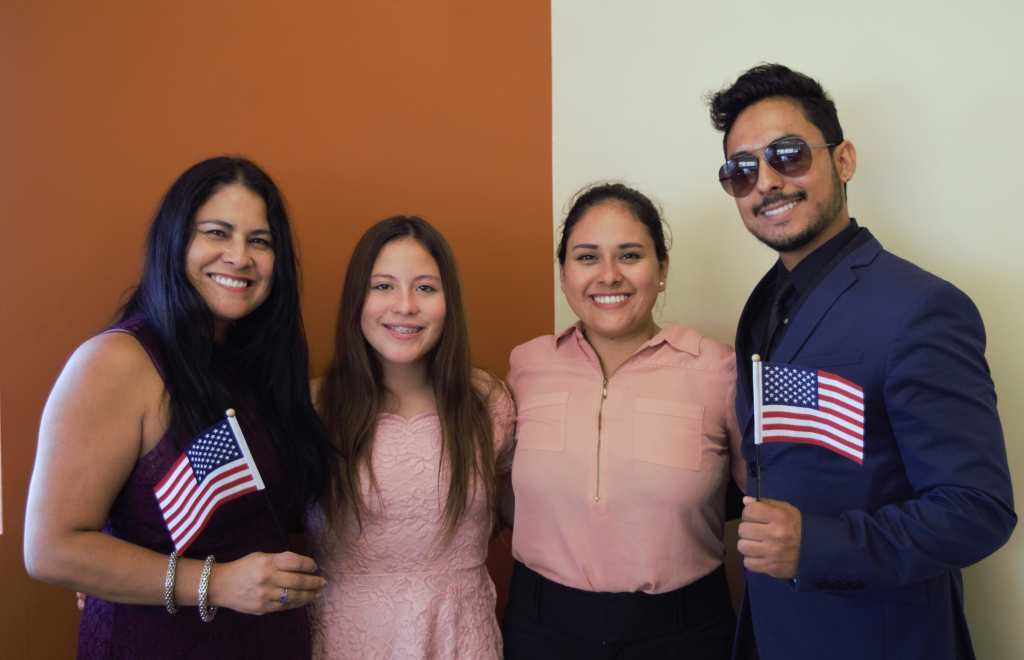
Mother and son, Argenis Polo Navarro and Christian Javier Carrillo were among the 875 new citizens sworn in on September 11 in St. Paul. Argenis’s two daughters accompanied them. Erika is waiting for notice of the date of her citizenship ceremony. Valentina, who is still a minor, will become a citizen through her mother.
Argenis and then-three-year-old Valentina arrived in North Dakota in December 2009. Winter was the first shock: in their native Cali, Colombia, the average high temperatures hover in the mid-80s all year around. Small-town life was another shock. Cali has a population of 2.4 million, and Argenis recalls feeling that the small town in North Dakota was like a ghost town, empty of people.
Erika and Christian, both teens at that time, arrived about six months later, so at least the weather was warmer. For them, too, small town living has been a big change.
In a big city, Erika says, you don’t greet people on the street because you don’t know them. But in Thief River Falls, where they now live, “people wave and talk to you, even if they don’t know you!”
Christian watched a lot of English movies before coming to Minnesota, “so my expectation was like Hollywood and then I came here and went ‘What’s this?’”
For Erika, that was good: “When you interacted with people, they were all really nice, not like mean people in shows.”
For Christian, the language barrier was the biggest culture shock. He worked hard, first to learn English vocabulary and grammar, and then to lose his accent. One strategy: “I would try to engage in conversation with elderly people because they would talk at a slower pace.”
Valentina, only three years old when she arrived, picked up the language quickly. All through preschool and elementary school, teachers called on her to be the translator who could help teachers and Spanish-speaking students communicate with each other. Now, she says, she does not have to translate as often.
For Erika, preparing for citizenship means thinking hard about what it means, especially the part of the oath that says: “I will, when lawfully directed, bear arms or perform noncombatant service in the Armed Forces of the United States, or I will, when directed, perform non-military service on behalf of the United States.” The language felt “shocking,” making her think seriously about what it could mean to serve the country.
While the family is happy in their new home, settling in “was a nightmare at first,” Argenis recalls. “Thank God for people who supported us and helped us get through hard situations, especially immigrant health services and immigrant legal services.” She says many people don’t realize that “you can’t just come here and apply for citizenship.” Even after getting green cards (legal permanent resident status), the family had to live here for five years before they could apply for citizenship.
Martha Castañon, in ILCM’s Moorhead office, helped them through the process of getting green cards and, years later, of applying for citizenship. Argenis said her help was essential, and asked to offer a message to readers:
“We are normal people who came to this country and suffered, too, even though we came legally with our visas and did the whole process of work permits and green cards and now citizenship. It wasn’t easy, but it is something possible.
“All of us study and work hard, to give the best of us to this community and country. We did that as legal residents, and now with more reason, as American citizens.
“We want to encourage people to apply for citizenship. Some people say they don’t know the laws. We can recommend Immigrant Law Center of Minnesota to help and guide us through the process. It is very important. Don’t be afraid to reach out to people for help.”
Argenis says she is happy with her life here, and grateful to the United States for the opportunities her family has here. Erika has finished college. Chris will graduate from college soon and is a musician. Valentina, in eighth grade, is already beginning a modeling career and plays sports. Argenis has worked hard in various jobs to support the family, and now works in a hospital as a nurse while also continuing her own college studies. The family belongs to the Evangelical Free Church in Thief River Falls, and their faith is an important part of their lives. Erika has traveled as a Christian missionary, and Argenis does volunteer work in the country jail, with bible studies and Zumba classes.
“We are very happy and proud to be Americans,” Argenis says, “We love and are loyal to this country, but also we keep our countries where we came from in our hearts.”
She found Judge Kate Menendez’s talk inspiring, saying, “I was so thankful what the judge said today. ‘You can keep your culture, your food, your language – you don’t have to change that, it’s part of who you are.’ That was very beautiful to hear that from an American person, an American judge. Some people think you have to forget your country, speaking Spanish, your food – and you can’t forget these. I’m going to keep them in my heart but be loyal to this country, too.”
Mongolia to Minnesota: One New Citizen’s Story
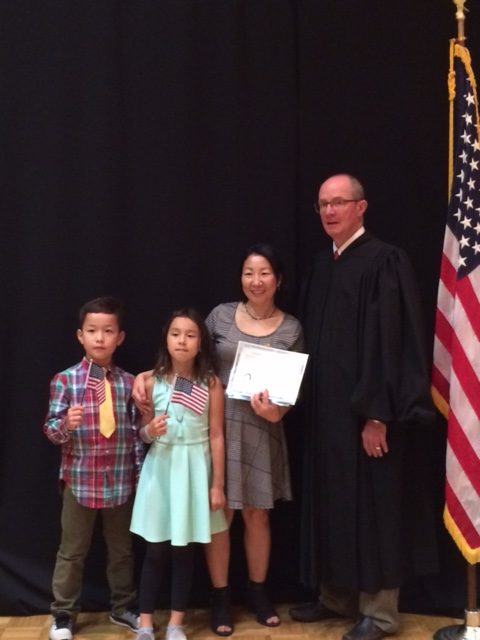 Even as the spouse of a U.S. citizen, Oogi waited two years for a visa to enter the country. She recalls “a really long process,” with detailed background checks and lots of paperwork. While waiting in her native Mongolia, she worked in an administrative position in the field of agricultural science, the area of her university degree.
Even as the spouse of a U.S. citizen, Oogi waited two years for a visa to enter the country. She recalls “a really long process,” with detailed background checks and lots of paperwork. While waiting in her native Mongolia, she worked in an administrative position in the field of agricultural science, the area of her university degree.
Finally, ten years ago, she got a visa as the spouse of a U.S. citizen. Oogi arrived in the United States on May 29, 2008. More than ten years later, on September 13, 2018, she raised her right hand and took the oath of citizenship in Moorhead. Her two U.S. citizen children and ILCM’s Martha Castañon, who had guided her through the citizenship process, were among the happy crowd at the citizenship ceremony.
At first, Oogi didn’t think about becoming a U.S. citizen. She was busy raising her children and retraining for her current job as a pharmacy technician.
In 2017, seeing hostility toward immigrants growing under the new administration in Washington, she decided to become a citizen. She explained:
“I wanted to be part of the citizens and vote and have my voice counted. It was the right decision to become a citizen and be able to vote. “
Becoming a citizen also took a long time. After turning in her application in early 2017, she waited almost a year and a half for her interview.
July 2, 2018 dawned clear and humid. Oogi drove from Bemidji to Fargo for the interview, about two and a half hours. “I was really happy,” she recalls. “It meant a lot just before the Fourth of July.”
Although she felt nervous, she and Martha had prepared well, and she soon got the notice that she had passed the interview and would be sworn in as a citizen in Fargo on September 13.
“I wasn’t really into politics or anything,” she said, “but then this last election really forced me to see how important it is whom you are going to vote for.”
Health care is a top issue for her, as she works in the health care field. She completed a second degree at Bemidji State University, graduating with a bachelor in science in biology and completing the pre-med program. She also has experienced the difficulty of paying for insurance. “When Bernie Sanders said this is your right, everyone should have insurance. I was like ‘Exactly!’ I worked in an emergency room and saw people without insurance and saw problems with the insurance system.”
Immigration is a big issue, too. “Part of the reason to become a citizen is that my kids are here and I’m not going anywhere,” she said. “But when I heard about the family separation on the border, it really hit me hard, and my kids were alarmed by it, too. So that’s important.”
Her message to other citizens:
“Voting makes so much difference. Think about it. There’s maybe a couple million who think voting doesn’t count, but every single person counts, and that’s really important. if you want to make a difference, or a change in your life, you have to vote for it.”
New Citizens Talk About Voting
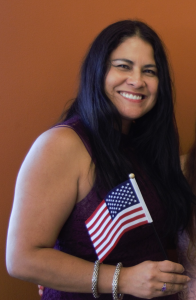 Naturalization—becoming a U.S. citizen—takes a lot of paperwork, study, and time. This fall, we talked to many new citizens who have been clients of ILCM, and asked them about voting. Here are some of their thoughts:
Naturalization—becoming a U.S. citizen—takes a lot of paperwork, study, and time. This fall, we talked to many new citizens who have been clients of ILCM, and asked them about voting. Here are some of their thoughts:
How do you feel about voting?
Argenis: “I’m very excited because it is my first time to vote here. I’m going to see all the candidates and what they offer for our country. I wish I can be part of the change that will make it better.”
Oogi: “I’m looking forward to it. I wasn’t really into politics or anything, but then this last election really forced me to see how important it is whom you are going to vote for.”
What issues are most important to you as you prepare to vote?
Christian: “It really depends on what the candidates have to offer. Not a single candidate will offer everything that you want. You want to go, first, with the one who makes more sense, and second, offers the country, the community some fundamental values that will keep us strong and together.”
Oogi: “When Bernie Sanders said this is your right, everyone should have insurance. I was like, ‘Exactly!’ I worked in an emergency room and saw people without insurance and saw problems with insurance system.
“I want to raise my voice and be part of it – health insurance is part of it, also working class people and middle class people—our struggles.”
Some people don’t feel that voting makes a difference. What would you say to them?
Argenis: “It does make a difference. It’s how you can speak out for yourself and for the people. One vote can make a difference.”
Oogi: “Voting makes so much difference. Think about it. There’s maybe a couple million who think voting doesn’t count, but every single person counts, and that’s really important. If you want to make a difference, or a change in your life, you have to vote for it.”
U.S. Has Highest Share of Foreign-Born Since 1910, With More Coming From Asia
More immigrants than any time since 1910, and better-educated.
Dolls, Teddy Bears, and the Littlest Immigrants
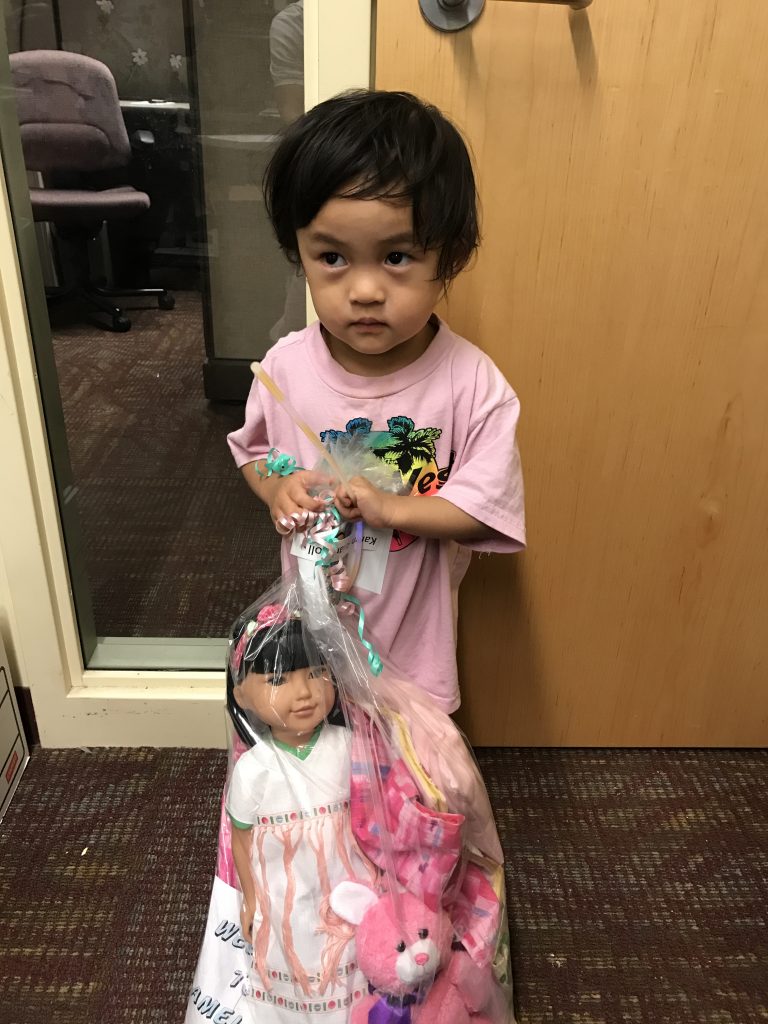
Imagine a five-year-old child, hundreds of miles from home and feeling the stress and fear of their parents as they face a new life in a new country. Perhaps they came from a refugee camp in Thailand or from a mountain village in Guatemala. People in Minnesota look different and sound different. Even the colors and clothing feel strange. But what if there were a doll or a teddy bear, dressed in familiar, traditional clothing from your homeland, waiting to welcome them?


The Immigrant Law Center of Minnesota (ILCM) is pleased to announce our new partnership with “Don’t Cry… I’m Here” (DCIH), a nonprofit organization that provides dolls and teddy bears to children who have recently arrived in the United States. They currently have over 450 members who purchase, sew, and prepare the dolls, teddy bears, clothes, and accessories. When DCIH receives a request for a doll or teddy bear, they research the family’s country of origin for inspiration to create clothing that closely resembles clothing the child would recognize. Each doll/teddy bear is given multiple outfits and accessories, and a “Welcome” card from a child in the U.S.
Four months ago, DCIH connected with us through Lutheran Social Service of Minnesota. We were intrigued by DCIH’s mission and excited to provide dolls and teddy bears to our clients from our offices in Minnesota: Austin, Moorhead, St. Paul, and Worthington.
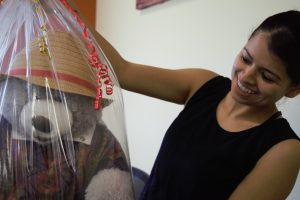
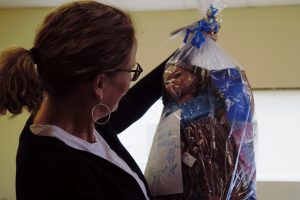
This past Friday, August 31, DCIH delivered 18 dolls and teddy bears styled for Karen and Guatemalan children to our St. Paul office. These dolls and bears will be distributed to our offices in Worthington, Austin, and Neighborhood House in St. Paul to be kept on hand for families in need. We are currently ordering dolls for a family from Ethiopia, and in the future, we hope to order dolls and/or bears for specific families. Ideally, we will give dolls/teddy bears to at least two families a month.
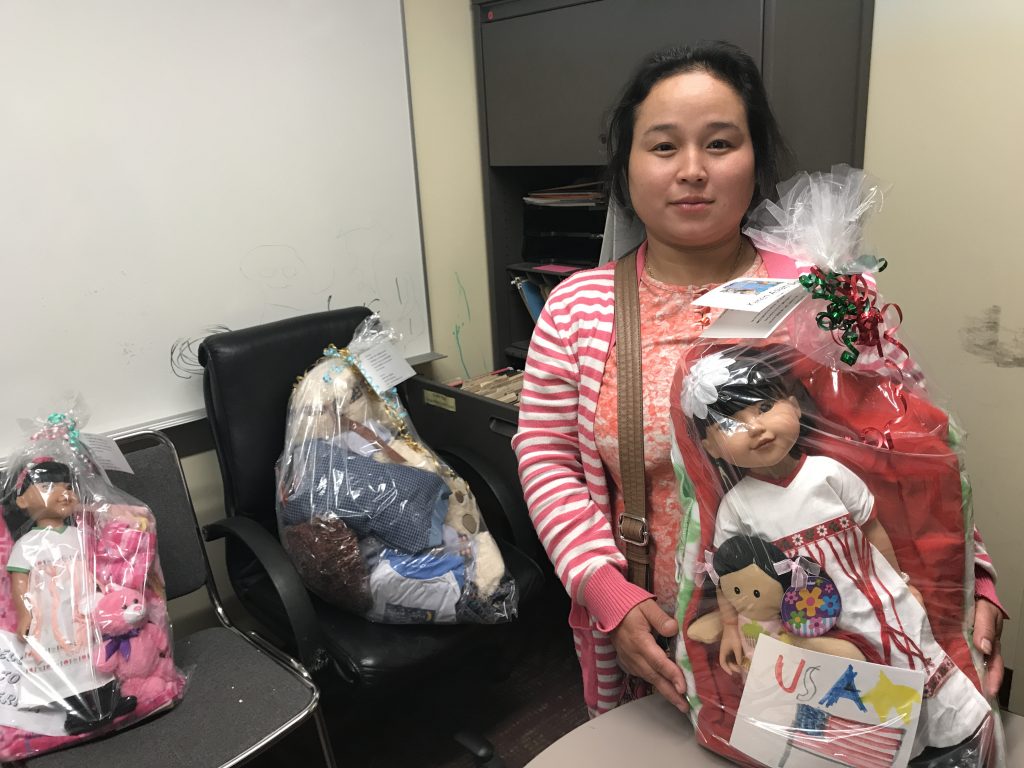
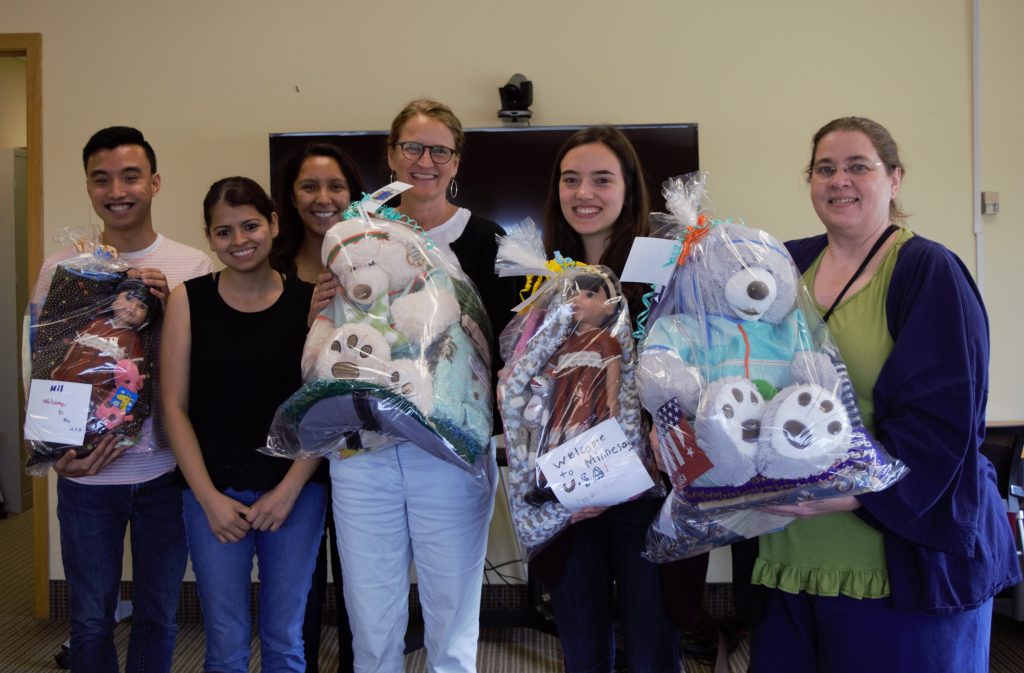
For more information about “Don’t Cry… I’m Here” visit their website at https://dontcryimhere.org/ or contact them at dontcryimhere@yahoo.com
(Photos by Mari Arneson for ILCM.)
Trump’s new plan to detain immigrant families indefinitely, explained
The Trump administration officially has a plan to detain families who enter the US without legal status for as long as it deems necessary — with no limit on how long children may be held with their parents.




